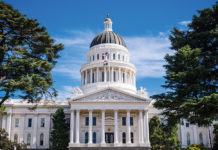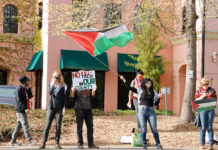Pouring fats, oils and grease (FOG) down sinks can ruin your home or restaurant’s plumbing systems and have negative impacts on municipal sewer systems and private septic systems.
FOG includes: canola oil; olive oil; vegetable oil; fats from pay-frying meats; sauces; butter and margarine and food scraps.
Don’t dump that FOG down your sink. FOG combine into solids in your plumbing system and downstream in the public sewer or septic system. Primary problems include: partial or total flow blockage, contamination of downstream water resources, repair costs, snapped sewer pipes and increases in sewer bill price due to an increase in operation and maintenance cost for the municipal sewer company.
In September of 2017, an 800-foot long mega-FOG-blob was discovered weighing 130 metric tons. The City of New York spent $18 million cleaning up FOG blobs in 2016. On Sept. 28, 2017, one million gallons of sewage was released into a stream in Maryland after a 130-ton FOG blob that was 300 yards long clogged the sewer system.
For more information watch the video: http://bit.ly/FOGpipe. FOG buildup is a big deal and will have a negative impact on your sewer system.
What can you do instead?
For best results, pour excess grease into a container with a tight-fitting lid for storing. Use a scraper or spatula to remove all the grease from the pan. Freeze it, or allow it to harden on its own and throw the hardened oil away on trash day.
Don’t rinse greasy dishes. Before washing, use a paper towel to remove small amounts of grease or cooking oil, and then simply throw the paper towel in the trash.
If you have a restaurant or other business which generates FOG, check with your local building department on requirements for installation of grease interceptors/grease traps.
For more information on the recycling or proper disposal of fats, oils and grease, along with lots more great information on how to keep your community clean, contact the Eco-Desk at 565-DESK (3375) or go to www.recyclenow.org.
This article was authored by Brian Wallace of LACO Associates, on behalf of RRWA. RRWA (www.rrwatershed.org) is an association of local public agencies in the Russian River Watershed that have come together to coordinate regional programs for clean water, habitat restoration, and watershed enhancement.








